In a large multi-employer study, researchers found that the full costs of poor health dwarf those of direct medical spending alone. Typically, companies measure healthcare expenses by adding medical care and pharmaceutical purchases. When researchers added the costs of presenteeism and absenteeism, employers spent four times more on healthcare costs than they estimated.
In the study of more than 15,000 employees, direct healthcare costs for medical care and pharmaceuticals totaled $2,375,115. Lost productivity costs, however, were calculated to be $10,307,057. Clearly, a company should look at all costs – direct medical care, presenteeism, and absenteeism – to get a truer picture of the costs of poor employee health.
"Lost productivity due to health-related reasons is a very real cost that is difficult to quantify," said David Sensibaugh, Director of Integrated Health for Eastman Chemical Company, which participated in the study. "This study shows that employers cannot address high healthcare costs by focusing on just direct spending. The poor health of employees is an equally important issue that must also be addressed, and we've begun to adjust our thinking accordingly."
Using the traditional view of assessing medical and drug costs alone, the study found that the top ten health conditions driving costs were:
- Cancer (other than skin cancer)
- Back/neck pain
- Coronary heart disease
- Chronic pain
- High cholesterol
- GERD
- Diabetes
- Sleeping problems
- Hypertension
- Arthritis
When productivity costs were considered, the top ten cost-driving health conditions shifted to:
- Musculoskeletal conditions
- Depression
- Fatigue
- Chronic pain
- Sleeping problems
- High cholesterol
- Arthritis
- Hypertension
- Obesity
- Anxiety
In a tightening economy, employers would do well pay attention to worksite wellness. A recent meta-analysis found that effective work health promotion programs resulted in a 22 percent reduction in sick leave, reduced emotional exhaustion and "burnout," improved mental health, and increased productivity. The most effective health programs promoted healthy lifestyles, regular physical activity, safety awareness, and ergonomic working conditions.
Reference:
Kuoppala J, et al. Work Health Promotion, Job Well-being, and Sickness Absences: A Systematic Review and Meta-analysis. Journal of Occupational and Environmental Medicine. 2008;50(11):1216-1227.
Poor Employee Health Costlier Than Employers Think [news release]. American College of Occupational and Environmental Health. July 2007.






